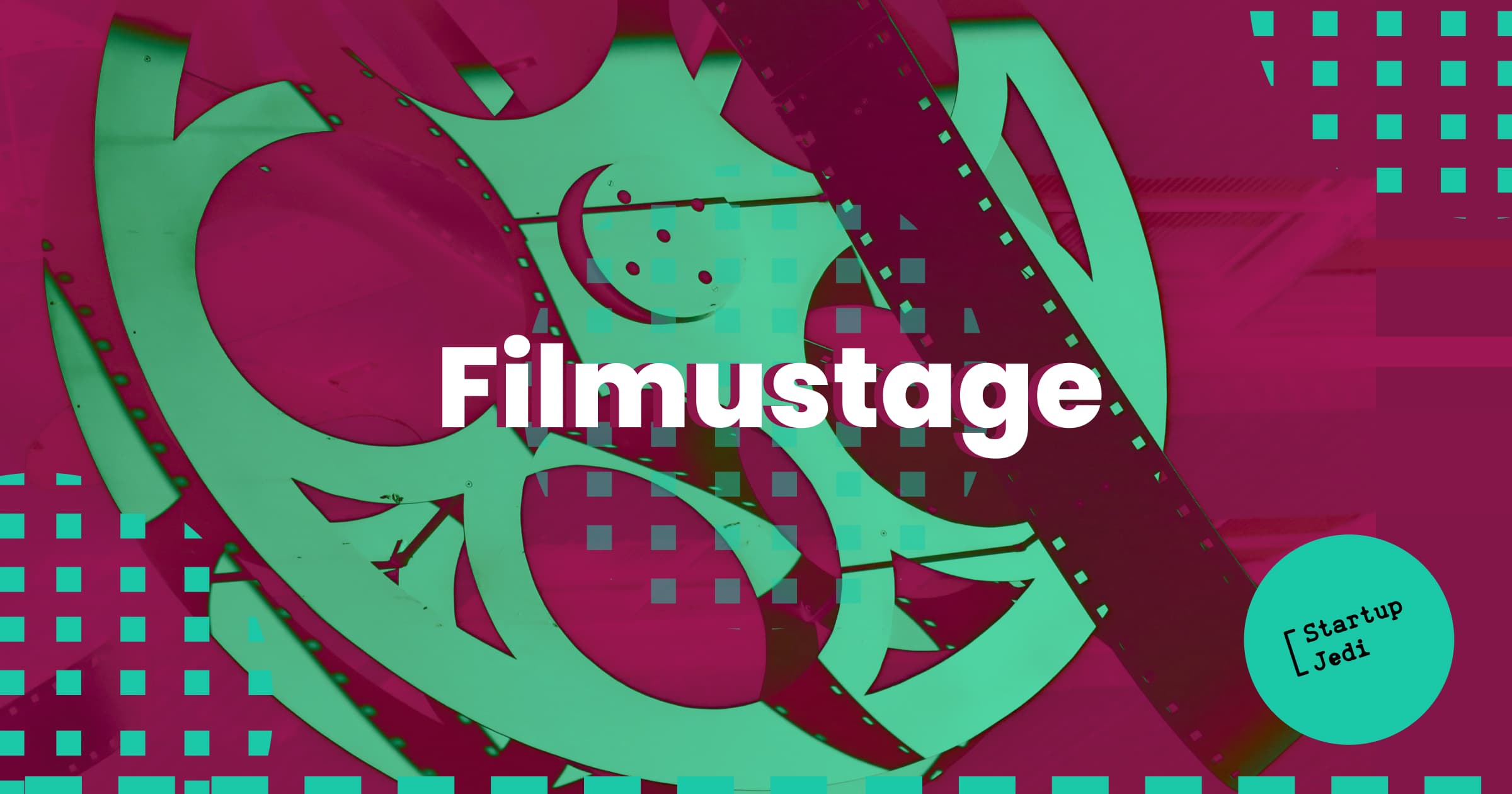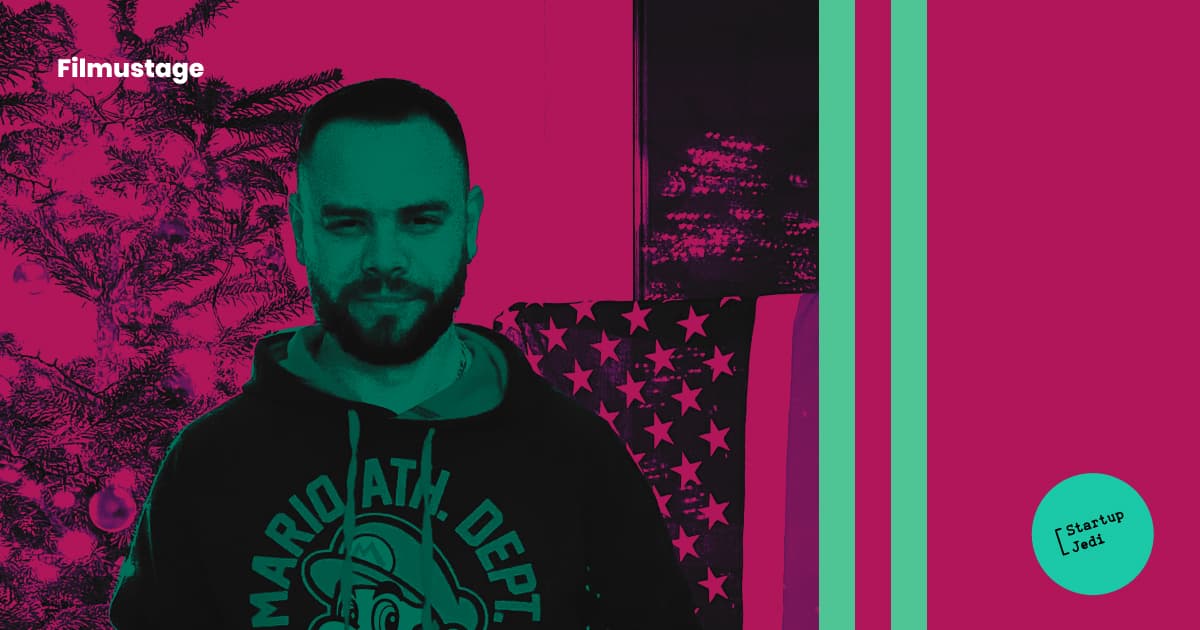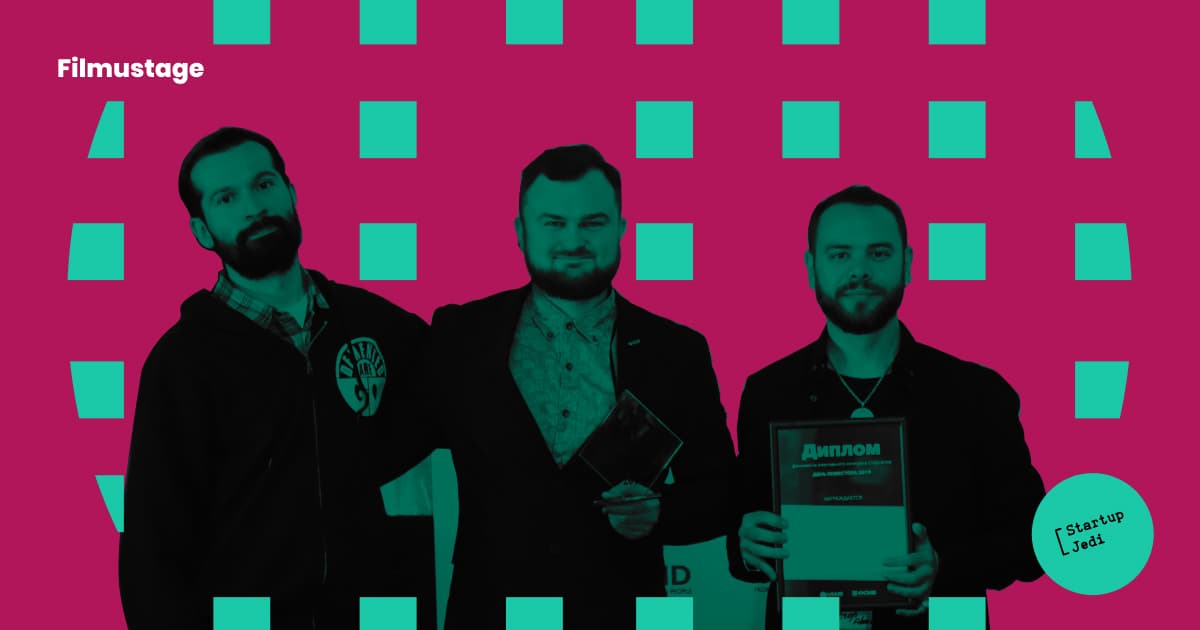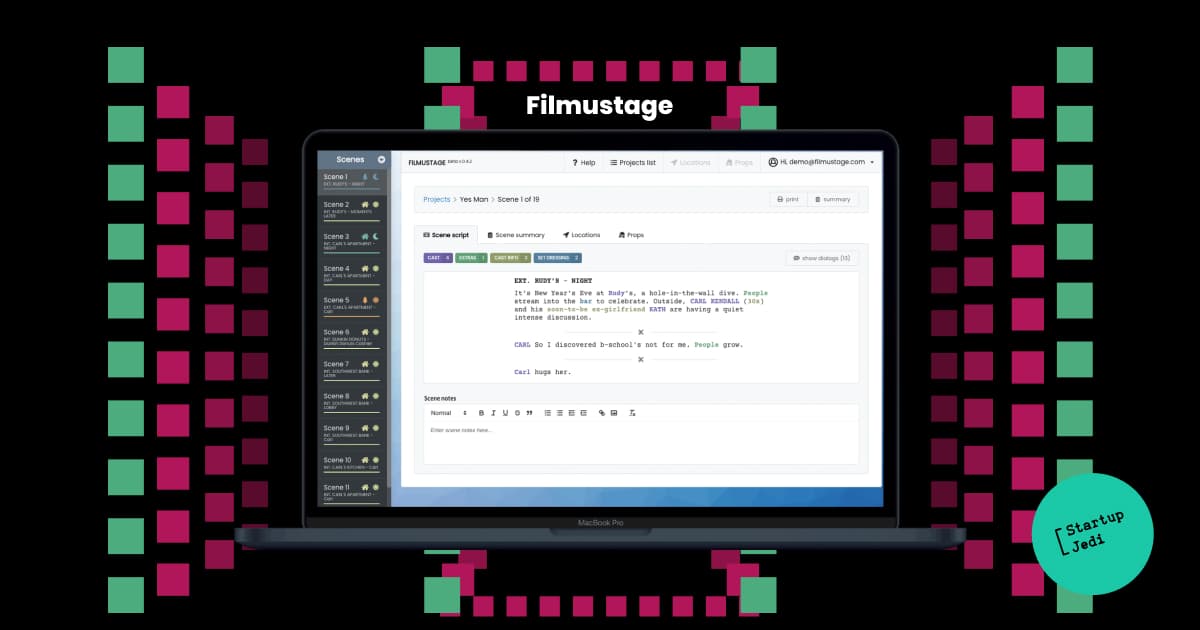
Startup Jedi
We talk to startups and investors, you get the value.
All of us watch films, but usually we don’t even assume how labour-intensive can be work with a complete script at times. People spend days to outline costumes, locations and make-up. It is dull and meticulous work, and it was unavoidable until recent times. The team of Filmustage startup found a solution. Now the neural network can work with the script. Egor Dubrovskiy, the founder of Filmustage, tells us about how the idea was born, what the concept is and where the project is now.

Startup Jedi
We talk to startups and investors, you get the value.
Filmustage is a web-service that automates the process of a film script production with the help of neural networks. The program analyses the downloaded script and creates a catalogue with requested metrics. For instance, “Locations”, “Costumes”, “Transport”, “Animals”, “Sound”. In such a way, as soon as the system makes the selection, you just need to proofread the script.
...
— A few words about the project: How did you come up with this idea and how it can save filmmakers’ time?
— The idea of the project was born in the result of my backpack being stolen in San Francisco. I went to my friend to help him film a movie in Los Angeles, and after that, I decided to visit my friend in San Francisco. We went to listen to some jazz in the local club, and when everything was over and we went out of the club, I found out that the trunk lock in my car is broken, and my backpack with all things, laptop, camera and documents had been stolen. So, that was the reason why I had to stay in the US longer, up until I didn’t receive new documents. To survive, I was looking for a job on the film sets. I got to know what the filming process was, communicated with specialists and understood what problems they were facing. After returning to Minsk, I had been hatching the idea for about a year, and then I made up a team of the future Filmustage project.
Any filming process starts with the script analysis. It is a long process, where you have to read out about 120 pages of a script and categorize almost every word (the property, transport, location, makeup, costumes, etc.) create various technical tasks for all creative groups afterwards. Currently, it is done manually, but we have automated this process with the help of the neural network by boosting this filming work stage from days to seconds. Our service works using the one-button principle: the user downloads the script, the neural network processes it and gives out the processed data in the required file format.
— Describe in steps how the soft works
— You download the script in a text format and it is processed in the neural network that understands the sense and the context without the set of keywords or phrases. It allows us to recognise all elements and achieve a good result. After that, you save everything in the format you need for further work. We strive to add all the possible and most-used file formats for expert features, so we could support all tools that are available on the market.
— How much time do you need to develop the final version?
— Depends on the script complexity. We act as assistants for professionals, we are not trying to substitute them. But the saving of time is considerable with the use of our program.
— What are the challenges you face during your work on the project? How do you solve them?
— One of our problems lies in the fact that people, especially creative people, didn’t understand what modern technologies are capable of, and they were sceptical to our idea. However, after they tried our Beta-version, they changed their point of view. Sure, there are bags but we are actively working to solve them.
— By the way, how safe is it to download the script in the application? How do you secure the client’s data?
— We are very cautious about the security question, as the script is the most valuable thing in the filming process of any film. All data is stored on Google’s encrypted servers, and we’re planning to undergo a security audit to meet all standards by the time of the project launch.
...
— How was the demand for a product studied?
— The product demand was examined right on the filming set in Hollywood. And after that, in Minsk, I have communicated with industry professionals who work in Los Angeles, and the feedback was more than satisfying. Since day one, we haven’t received any negative feedback, and this even scared us a bit:)
— Who are the competitors?
— Our main competitor is the colour felt-tip marker. There are no other solutions that make an automated script analysis, we are the first in the field. There are competitive textual editors, that, in fact, are just a substitution to markers, but still, you have to provide the analysis and the categorization on your own. Our main competitors in this direction are Movie Magic Scheduling, StudioBinder, Celtx.
— Where do you look for your clients?
— We are looking for our potential clients in specialized groups and communities. By the way, the first users came from those communities. Recommendations work a treat in this industry, people are sharing good recommendations that are making their work easier and save their time.
— How many users did the Filmustage have? How much time did the service save to them?
— There were up to 150 beta-users and all of them are Americans. Those were both large- and small scale projects. One film even started the filming preparations after we made preparations in our software. The film director was raved about the result but before using our service, he was quite sceptical about it. For sure, we saved a couple of days for him.
— Tell us about the collaboration with Timur Bekmambetov:) How did you get acquainted and what are the results?
— One of our advisers introduced me to Timur. Timur got interested in our project and we are currently negotiating about a possible partnership.
...

— How many people are currently working on the project?
— There is a team that consists of 6 people, three of them are co-founders. We have known each other for many years ever since the studentship. To my surprise, I made up the team in less than a week ( it was about a year and a half ago). Since then, the team’s roster has slightly changed.
— What is your major and what are the majors of your team members?
— The majority of the team has technical education but we also have graduates from the Foreign Languages department, and there is also a person without a degree and that’s me. I quit university in the third year when I changed the form of activity — I switched to photo and video shooting, and that is how I end up with launching the startup.
— How are responsibilities assigned?
— We all develop the project, including me. I completely develop the UI/UX part, and everything that is “on the dark side of the moon” — all the server part and the neural network is done by the team. Our responsibilities are a bit blended right now, we are a startup, we learn together, look for solutions and help each other in all cases. For example, there are not many leads now, so we process them on our own and step-by-step build up a full-fledged workflow.
— Recently, Filmustage has gone through the acceleration in the Startup Training Camp. How did you get there and what did you get from it?
— We met Gabil Tagiev, the founder of Rocket DAO (a Startup Training Camp acceleration program is a part of Rocket DAO ecosystem), on one of the mentor sessions, provided by Angels band. Back then, Tagil invited us to take part in acceleration, and we agreed immediately.
We like the event-format, it didn’t take much time that startups don’t have by default, and it was extremely effective. We were pleasantly surprised by the fact that guys from Rocket DAO found knowledgeable experts for our project, they also invited Andrey Kureychik to help. He liked our project, and he gave useful hints and pieces of advice. The event appeared to be quite effective, besides, we won a prize of $7000, which will come in use.

— What is already done in the project? Why do you need investments?
— We have reached the public beta-version stage. We managed it on our own, without any investments from outside. However, now we need to launch the active sales and marketing campaign.
— How much time did you spend to develop beta-version and when did you launch it?
— We have been developing beta-version since April 2019. We launched it by the end of December. We spent a lot of time creating a dataset, so the beta would “understand” all categories.
— Plans for the following year: what do you want to accomplish?
— Currently, we are working to improve the quality of the neural network and to incorporate all required export-formats. In 2020, we plan to:
1. Develop the product to the final release;
2. Launch active sales;
3. Rid people in the industry from manual work;
4. Make personal acquaintance with Quentin Tarantino.
— How many investments are you planning to attract?
— We’re planning to attract $100k in a SAFE*-deal.
— What about the monetization: there are a few service packages of different price on the website of the project. What is the best-seller and what is the client segment, you are counting on?
— Yet, people are more interested in beta-version, since no one has done such a tool for filmmaking that automates the whole part of the work. The monetization model is simple — we sell points, one point — one script page for export. You can upload the script to our service and see the result of the work for free. But if you want to save the process results for further work, you have to use points.

...
The first thing to do is to validate the idea. At first, I would recommend defining the problem, not masterminding it, and generate the solution idea to that problem. Then, the market would definitely like it.
The second thing is the team. The startup is a team-game, you won’t go far along. Will it work out with the team or not, you will see at the early work stages. If people are on the same “vibe”, they are ready to work out of their area of responsibilities, they are optimistic about the project just like you — those are the people you need. Still, it takes time to test a team so that you go through difficulties together. I would also recommend going for a trip with your team or partners: people tend to show who they are when they are out of their comfort zone. Together with my team, we met the difficulties, went for many joint trips, and I surely say that we are on the same “vibe” and understand each other.
Facebook: facebook.com/StartupJedi/
Telegram: t.me/Startup_Jedi
Twitter: twitter.com/startup_jedi
Comments